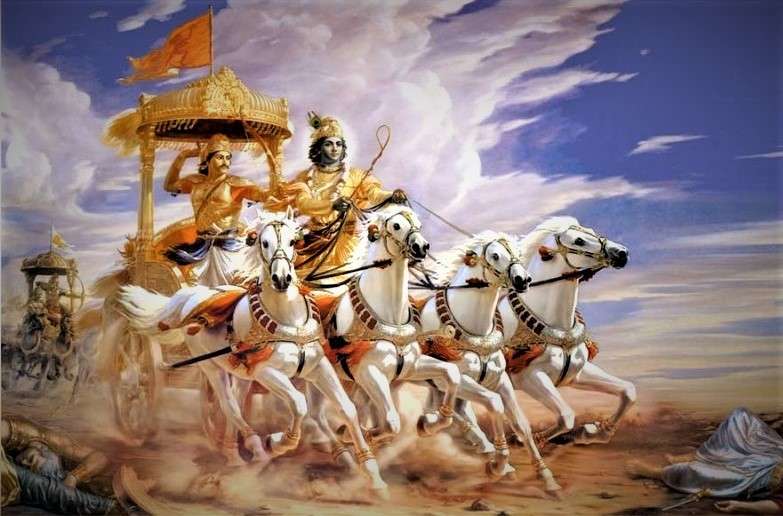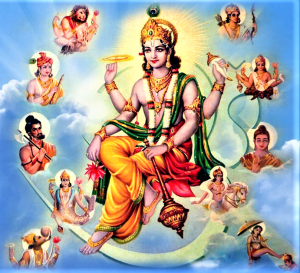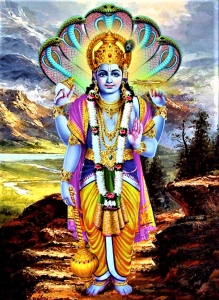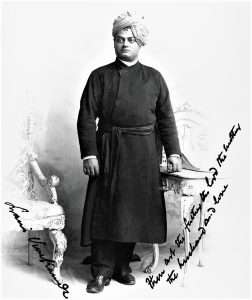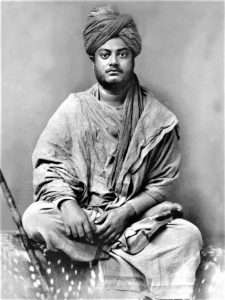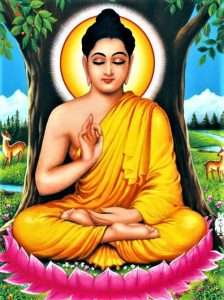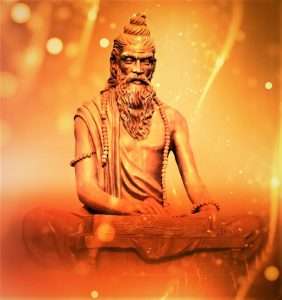Karma Yoga

The word Karma is derived from Sanskrit Kri which means to do. Hence Karma means action or deed. Karma means any physical or mental action. Karma technically also means the effects of our actions both in the present life and in the previous lives. Karma Yoga deals with the word Karma simply as work or action.
Karma Yoga – According to a great Hindu Scripture Srimad Bhagavad Gita, Karma Yoga means performance of actions without any attachment to the result of the actions while being in union with the Divine. It is consecration of actions and their fruits both unto the Lord. Such actions performed without attachment is Yoga which become a way to attain liberation. All great Yogis perform actions without any sense of attachment therefore the actions do not bind them. By being so detached they do not create any new Karma as well which gradually leads to the state of Yoga; freedom. Karma is considered one of the most effective means of mental purification in order to experience the deeper aspects of meditation. While doing any kind of Yoga as our primary practices for evolution, it is important for all of us to implement aspects of Karma Yoga.

Continuing actions by three modes of nature – We all are controlled by the three modes of Nature. They are –
- Sattva (Peace and light)
- Rajas (Activity and engagement)
- Tamas (Darkness and inertia)
These three modes of nature make us perform various actions every moment. No one is immune from this control of nature. Hence, all actions leave impressions on our mind as memory which guides our following actions. Karma Yoga teaches us about this and guides us to mould our ways to dilute those impressions.
Three kind of Karma – In Gita (4.17) Lord Krishna mentions three kinds of Karma. They are categorical divisions of the actions which one comes across in daily life. The divisions of Karma are also described in Yoga Sutra of Patanjali (4.7). Karma in the Gita are –
- Karma (Prescribed duty)
- Vikarma (Prohibited actions)
- Akarma (Inaction)
Karma in Yoga Sutra are –
- Shukla Karma (Bright action)
- Krishna (Dark action)
- Mishra Karma (Mixed action)
- Ashukla and Akrishna (Neither bright nor dark)
Karma – Karma means those actions which are prescribed to be performed. This includes observing natural calls, daily activities for livelihood, interactions with people and beings around and so on. Karma will always vary from person to person in relation to his place, circumstances, surroundings, inner nature, situations and things & events around. What is a prescribed action for one person may be unprescribed for other. In this way, Karma becomes a matter of proper analysis in terms of what one chooses to perform.

Vikarma – Vikarma means prohibited actions which we are not supposed to do. There is a general list of prohibited actions that as a human we should not do such as stealing, abusing, expressing anger, gambling, prostitution and so on. However, there is a possibility that some actions which are prescribed at one place are prohibited at other places. At the same time, some prohibited actions becomes prescribed actions according to certain context and situation of life. Therefore, Vikarma also needs to be analysed properly.
Akarma – Akarma means actions in state of inaction. In akarma the doer stays totally unaffected by any stain of actions. For example, action performed with awareness becomes less energy consuming. Action in the spirit of agency brings no sense of responsibility. It is Akarma state of action that is considered the right way of performing action where the doer is totally immune from any impressions of actions as he acts for action’s sake. All great masters of the worlds were able to perform actions in the state of akarma.
Desire makes Karma – Controlled by three modes of nature each human has threefold modes of action; desire, knowledge, will. They fashion his Karma. We desire something, we know something and we want to do something. A desire for an object comes in the mind, we begin to think how to get it and we try to have it. This is the cord of Karma. Desire is the driving force for Karma. We take actions to acquire the objects of our desires. In the process of fulfilment of desires, Karma produces fruits as pain or pleasure. This is a continuing process which makes us receive births after births to enjoy the fruits of our Karma. This is the eternal law. We cannot stay without doing anything. Karma Yoga teaches us that we must do good actions, we must refrain from bad actions and perform actions in the spirit of agency and unattachment wo that we stay unaffected by the fruits of actions.
The law of Karma – The Doctrine of Karma forms an integral part of Vedanta, Buddhism, Jainism and other forms of spiritual orders as well. It simply means as we sow, so shall we reap. Every human with even little sensibility will have to accept it. There is no other way. This law encourages us that destiny is created by our own thoughts, habits and character. There is a great opportunity for correction and improvement by changing our thoughts, habits and character. We have record of people becoming evolved from badness to goodness. The law of Karma opens a great door for this. It motivates us to right thinking, right speech and right action.
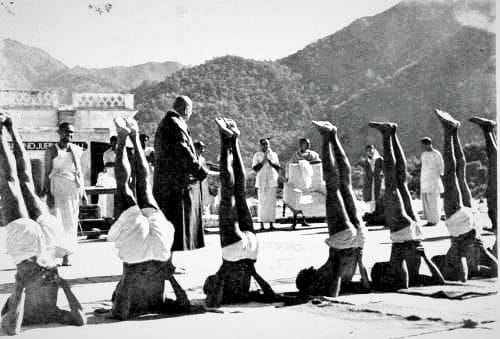
Practices of Karma Yoga – In our daily life we need to implement the practices of Karma Yoga. There are a few possible ways that we can turn our normal actions in Yoga. They are –
- Performing right actions – It means those actions which are right by their nature such as doing own daily norms like observing natural calls, keeping cleanliness, expressions kindness to others and all other actions with are right per se.
- Refraining from bad actions – It includes those actions which are bad by their very nature like hurting others, untidy living, stealing, gambling, stealing and so on.
- Performance of the prescribed actions according to one’s own true nature – It includes those actions which we do for our livelihood and vocation. In Indian tradition people’s work were divided according to their class belonged. The classes were made according to their inner nature like peaceful and calm people would be teachers, brave and enthusiastic would be in army, clever and calculative will be in the enterprise and business and faithful and obedient people would be working as assistants. This at the moment is very difficult to maintain and decide therefore we have huge complexity about this idea. Nevertheless, we can still look within ourselves regarding this and we must select that work which suits to our personality and inner happiness because the work must elevate us and the impressions caused by work must be transforming. This is doing “Swadharma – work based on our own true nature”. Even though others work appears alluring and more successful still we must abide by our own work.
- Performance of actions with awareness – It simply means we must try to engage ourselves into actions while being aware of them. We are speaking and at the same time we must be aware of our speech and so on.
- Performance of actions as mere play – It means the actions should be taken like a sport which does not require any concern about the results of the actions. We simply engage in the sport. The result is of no importance. We play, we play smartly and that’s it. This is how all works should be taken into account.
-
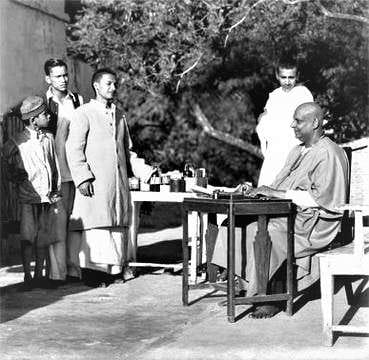
Swami Sivananda inspires His close disciples Performance of actions without expectation of any reward – It means that the reward of the actions is not in our hand. We sow a seed. We look after it properly but the plant will come on time only according to the natural course of time. Similarly, each action should be performed without any expectation of any reward.
- Performance of actions as non-doer/agent/instrument – It means the doer should be aware that he is an instrument in the hands of nature. It is the nature that is controlling his behaviours and actions and that’s how he should identify himself while performing an action.
- Performance of actions with the spirit of Godliness – It means that each action is just like a worship. There is no distinction between works. Each work is as divine as any other work one may imagine and dedication to the work is equal to the worship of God.
- Performance of actions while being aware of God and Godliness – Believers of God may keep the memory of God active in their mind while being aware of an action like a mother remembers her baby all the time even though she is busy into too many activities. Action with hands and mind engaged about the memory of God – this is a very good practice.
- Performance of God’s work – It means that every action that we perform should be done for God. We breath to live for God’s service. We cook with the spirit that the food will be blessed and consumed by God. We clean the house with the spirit that one day God will visit us, we prepare everything with the spirit that it belongs to God and it is God for whom we are preparing and acting in various ways. Sabri was one such lady in ancient India who lived like that. She would prepare roads to the river very early morning before anyone would be awake so that people going to the river felt comfortable, she would clean her cottage and areas around, prepare food everyday with intense love, devotion and belief that one day God Ram will visit her. And one day God Ram with His wife and brother visited her and granted her the greatest blessings of human life; unalloyed devotion to God.
- Performance of actions according to the guidelines of masters – It means an individual should be disciplined about the guidelines of his master. He should do exactly how his master guides and how he has been instructed. This requires strong faith in the words of Guru and master.
- Performance of actions for the well-being of others – It means doing good to others and helping others. Yoga says that we are not given wealth, wisdom, position, power and so on for ourselves only. We should share and distribute among others and we must do something that is connected to the well-beings of others.
- Performance of actions for action’s sake – It means action should be done with the spirit of action only. We take an action and we have no more ulterior or posterior thoughts about it. We love someone for love’s sake, we play for play’s sake, we act for action’s sake and so on. This is a very mature practice.

How a Karma Yogi works – A doctor is not tainted with any sin if his patient dies. A teacher is not affected by the good or bad actions of his students. Similarly, we should carry on our daily life while being serviceable to each being with no expectation of happiness and misery. We are not expected to possess enormous wealth to practice Karma Yoga. We can perform Karma Yoga with our mind and body. We come across someone in need, we can give him what we can, cheer him up with sweet, soft and encouraging words. There are many things like this that we can do which does not require a lot of efforts and money. If we do service like this, we will attain purity of heart. To only a few fortunate ones, God offers by His sheer grace some opportunities of Karma Yoga and we need to perform with wholeheartedness. This is a very helpful towards our evolution. Swami Sivananda prescribes a very effective way to practice Karma Yoga. He guides as follows –
“If anyone is suffering from acute pain in any part of the body, at once shampoo the affected part very quickly. Feel, when you massage, that you are shampooing the body of the Lord (Virat). Repeat your Ishta Mantra (special mantra of personal God or given by one’s Guru) or any name of the Lord while shampooing. Pray also from the bottom of your heart: “O Lord! Remove the pain of this man. Let him rest in peace. Let him possess good health.” Feel, when you massage, that the energy from the cosmic source, Hiranyagarbha, is flowing continuously through your hands. Some neophytes are afraid their energy will be depleted by massaging another person. This is a serious mistake. The more you give, the more you will get. You will be in tune with the cosmic energy or the Infinite. This is the divine law.
Conclusion – Karma Yoga is a very essential branch of Yoga. This is important for practitioners of all branches of Yoga. Until we practice Karma Yoga incessantly, we can’t access easily any other branch of Yoga. Karma Yoga purifies our heart, checks and balances our mental impressions and opens the intuitive faculty of our being. Egoism, hatred, jealousy, complex of personality, negative qualities and other unwanted tendencies of mind become subjugated with the practice of Karma Yoga and we develop humility, love, sympathy, kindness, tolerance, lightness of mind and merciful attitude.
With Love and Gratefulness (Founder Rohit Kumar)
Source – Words of Swami Vivekananda, Swami Sivananda, Swami Satyananda, Bhagavad Gita and personal study.
Hari Om Tat Sat!




